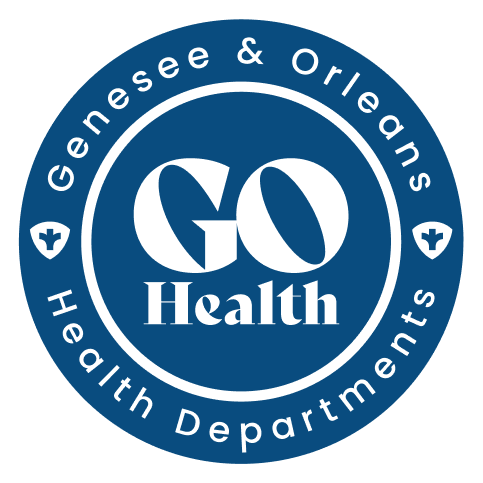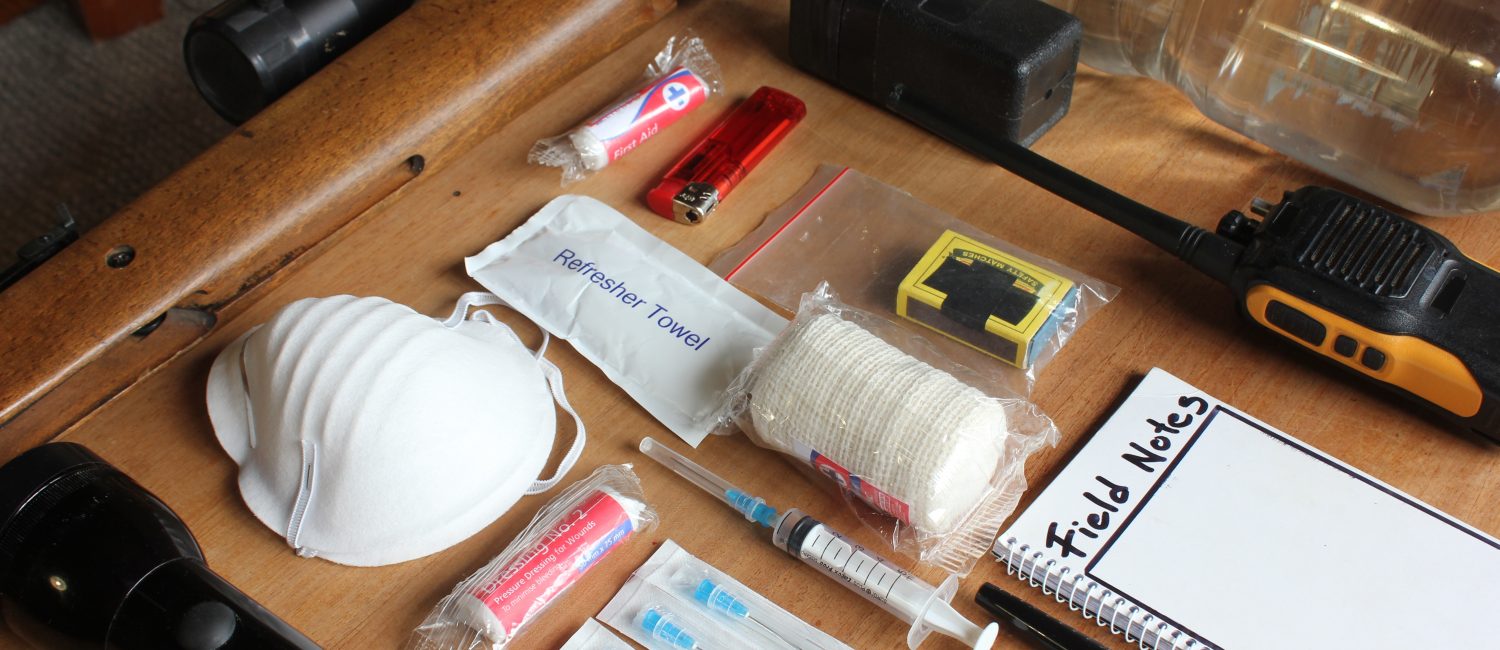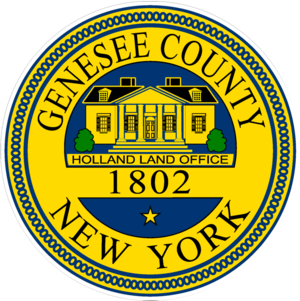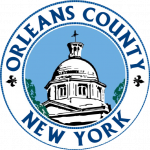The Public Health Emergency Preparedness Program (PHEP) works toward a prepared and resilient community through planning, training, drills, exercises, outreach, and emergency response. We facilitate response to existing and emerging public health threats through multi-agency coordination, and oversee the Genesee and Orleans VALOR Medical Reserve Corps (GO Health VALOR MRC.)
Stay up to date on communication and learn more through our community emergency preparedness apps Ready Genesee and Orleans Aware!
Why Being Prepared Matters:
- Your own personal and family preparedness not only helps you be ready for when disaster hits, but it will also give you the ability to assist friends and neighbors when the need is greatest. A prepared community must start with each one of us. If you are interested and willing to do more, please see the opportunities for GO Health VALOR MRC below.
- Preparedness helps us be more resilient during times of stress and disaster, reducing negative effects and helping our communities recover quicker
Service and Informational Resources
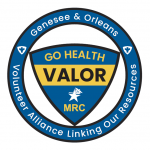
GO Health VALOR MRC is a volunteer organization and medical reserve corps dedicated to local community well-being and resilience. Through coordination by the Genesee and Orleans County Health Departments, we:
- Assist in public health emergency response
- Support public health service and humanitarian projects
- Participate in trainings for prepared and safe communities Volunteers may be county employees, healthcare professionals, other professionals or residents, or others supportive of health and resilience in Genesee and Orleans. It is this diversity of participation that makes the Volunteer Alliance Linking Our Resources – Medical Reserve Corps (VALOR MRC) the valuable and vibrant organization it is.
Please consider joining or reconnecting with GO Health VALOR MRC today!
Participation with GO Health VALOR MRC starts with creation of a ServNY account, which is the platform for volunteerism across New York State. Please choose Genesee and/or Orleans County Health Departments as part of your volunteer affiliations. You will then be contacted with further information as relevant.
Creation of a ServNY account can be found at https://apps.health.ny.gov/pub/servny/
Complete the GO Health VALOR MRC Application online at https://www.surveymonkey.com/r/MRC_Application or complete the fillable PDF by clicking here.
New Emergency Prepardeness Apps (Ready Genesee and Orleans Aware) will be available soon!
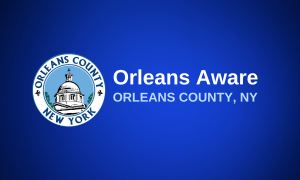
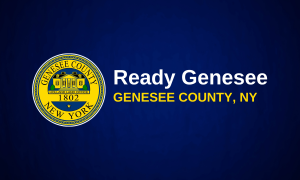
A good way to think about preparedness is through the ABCs of Awareness, Be Ready, and Community
- Or expand this to be
- Awareness of Threats and Always Plan Ahead
- Be Ready with Supplies, Training, and Drills
- Community Connection and Communication
See more about this approach at https://www.cdc.gov/prepyourhealth/index.htm
Some resources that integrate the ABC’s:
- Know the Threats: https://emergency.cdc.gov/planning/index.asp
- Hazard-Specific Emergencies: https://emergency.cdc.gov/hazards-specific.asp
- Protect Yourself and Loved Ones: https://emergency.cdc.gov/protect.asp
- Think about what emergencies could affect you or your family and what you should do to prepare.
- Use the “My Emergency Plan” Icon under the Emergency Management tab of this app to record your checklist items and important contacts. Or create a plan using your own template! Check out these resources!
- Ready.gov: https://www.ready.gov/kit
- CDC Build a Kit Video: https://www.cdc.gov/disasters/psa/emergency-kit.html
- For families with kids: https://www.cdc.gov/childrenindisasters/checklists/index.html
- Make sure everyone knows how to quickly evacuate your home in case of fire or other emergency, particularly from bedrooms and floors or stories that are not at ground level, and what to do should there be significant smoke or not enough light to see.
- Think ahead in case any emergency requires you to evacuate your home, school, or work area, including who you might contact and where you should go.
Emergency Supply Rule of 3:
- 3 days – worth of food and water per person, as well as fuel or other supplies to generate or maintain heat
- 3 weeks – worth of items considered “essential” with expiration but not perishable, including important medications and routinely used canned, sealed, or dried food supply, as well as additional clean drinking water if possible
- 3 months – worth of key medications, personal protective equipment, or other emergency supplies or equipment you are likely to use within any given 3 month time, with particular attention to seasons that might be prone to extreme weather including, heat, cold, or storms.
GO Health encourages residents in Genesee and Orleans Counties to store the word ICE in their mobile phone address books and enter the number of the person to contact in case of an emergency. The ICE acronym allows emergency officials to quickly access the right names from a cell phone’s address book. It can save valuable time, since many people identify family members only by name in their cell phone, making them indistinguishable from other entries.
Follow these hints to get the best of your ICE:
- Make sure the person whose name and number you are giving has agreed to be your ICE partner.
- Make sure your ICE partner has a list of people they should contact on your behalf – including your place of work.
- Make sure your ICE person’s number is one that is easy to contact, for example, a home number could be useless in an emergency if the person outside the home full time.
- Make sure your ICE partner knows about any medical conditions that could affect your emergency treatment – for example allergies or current medication(s).
- Make sure if you are under 18, your ICE partner is a parent or legal guardian authorized to make a decision on your behalf – for example, if you need a life or death operation.
- Should your preferred contact be deaf, then prefix the number with ICETEXT.
- For more than one contact name, type ICE1, ICE2, ICE3, and so on.
Yellow Dot is a free program designed to help first responders provide life-saving medical attention during the first “golden hour” after a vehicle crash or other emergency. A Yellow Dot decal is placed on the rear driver’s side window to alert emergency responders to look in the glove compartment for emergency medical information.
Request a Yellow Dot from the NY Sheriffs Association: https://nysheriffs.org/yellowdot/
Cooling Centers
- Cooling Centers are places where local residents can find public facilities that are indoor, well-air-conditioned, and have plenty of space to relax when the weather is hot.
- When active, locations are announced through local media, including notifications in Health News on this app, and the Resources mapping function.
- Location often include libraries, volunteer fire halls, and other community centers.
- Please consider knowing when and where these Centers might be, and consider recommending them to anyone you know you might be vulnerable in the summer heat.
Warming Center
- When during the business day, these are very similar to Cooling Centers, except occur during the cold months of winter.
- In addition, warm overnight options can be made available through local commitments to Code Blue, ensuring unhoused individuals have a place to rest when the temperature drops to a certain amount. See more at: https://www.wnycoalitionforthehomeless.org/
Power Outage / Storm Shelters
- When necessary, shelters for severe weather or other community crises can be established, including food and sanitation facilities.
- During times of community emergency, local volunteer fire departments are likely to be busy, so locations such as select public school facilities or other large community centers are more likely to be utilized.
- When active, these locations are also announced through local media, including notifications in Health News on this app, and the Resources mapping function.
Know your Top 10 Household Hazards (and see more at https://staysafe.org/safety-at-home-10-common-safety-hazards-around-the-house/). In order of risk level, based on both likelihood and severity, these are generally:
- Falls
- Poisoning
- Carbon monoxide
- Fire hazards
- Drowning
- Choking
- Sharp objects
- Stoves
- Dishwashers
- Suffocation
Most importantly, many of these hazards are highly preventable. Learn more at these resources:
- Red Cross – Is Your Home a Fire Hazard?: https://www.redcross.org/get-help/how-to-prepare-for-emergencies/types-of-emergencies/fire/is-your-home-a-fire-hazard.html
- CDC Carbon Monoxide Poisoning Prevention Guidance: https://www.cdc.gov/co/guidelines.htm#:~:text=Don’t%20run%20a%20car,window%2C%20door%2C%20or%20vent.
- National Safety Council – Choking Prevention and Rescue Tips: https://www.nsc.org/community-safety/safety-topics/choking
- Household Chemical Emergencies: https://www.ready.gov/household-chemical-emergencies
One of the best ways to protect yourself and your loved ones is to be prepared with safety trainings. For the people you most care about, you are likely to be the first to respond to an emergency.
For this reason, please consider some of the following trainings, either offered online or through local resources such as the volunteer MRC unit on this app.
- First aid, CPR, and AED:
- Stop the Bleed: https://www.stopthebleed.org/training/
- You are the Help Until Help Arrives: https://community.fema.gov/PreparednessCommunity/s/until-help-arrives?language=en_US&tabset-15eb6=2
- Narcan: https://www.narcan.com/
- Psychological First Aid: https://emergency.cdc.gov/epic/learn/2020/webinar_20200422.asp
